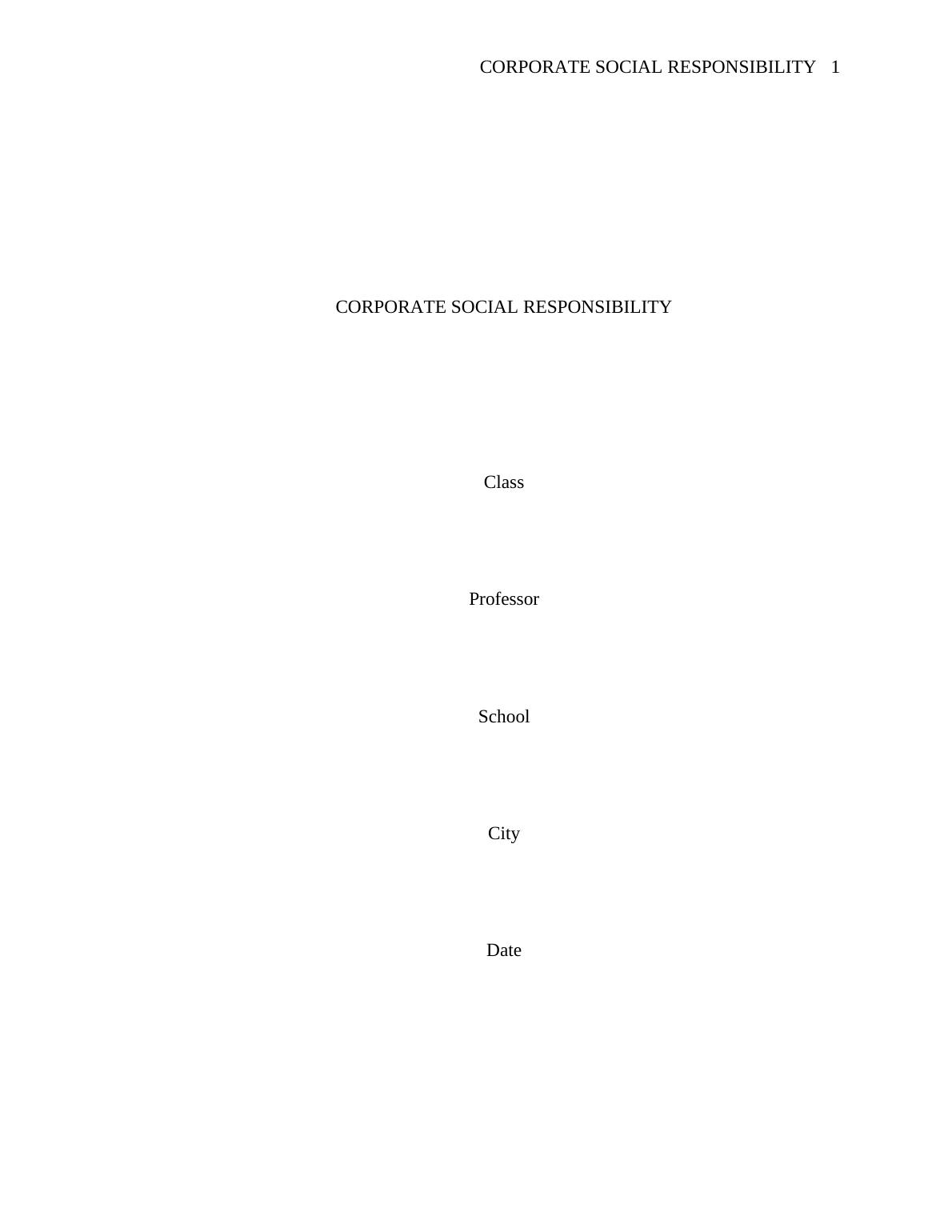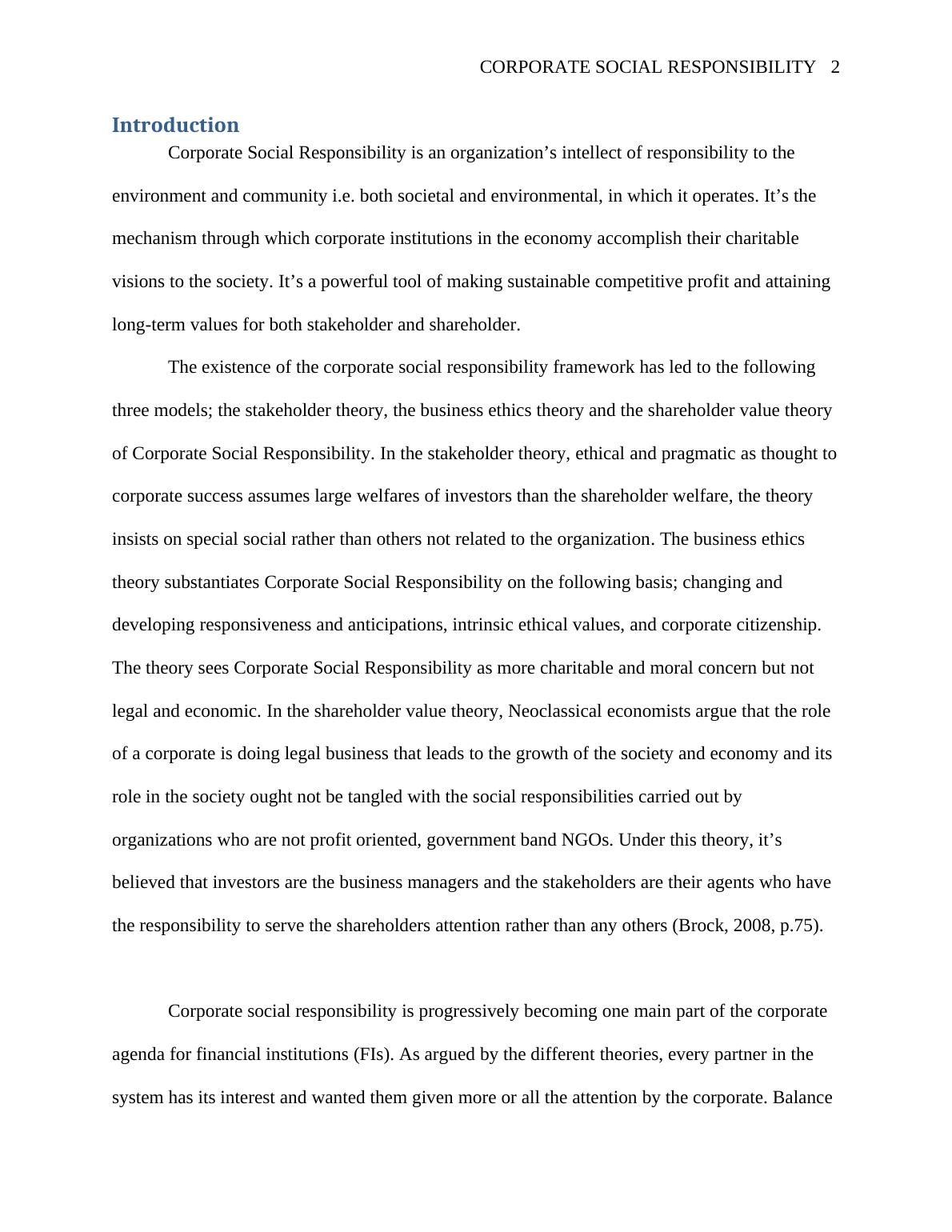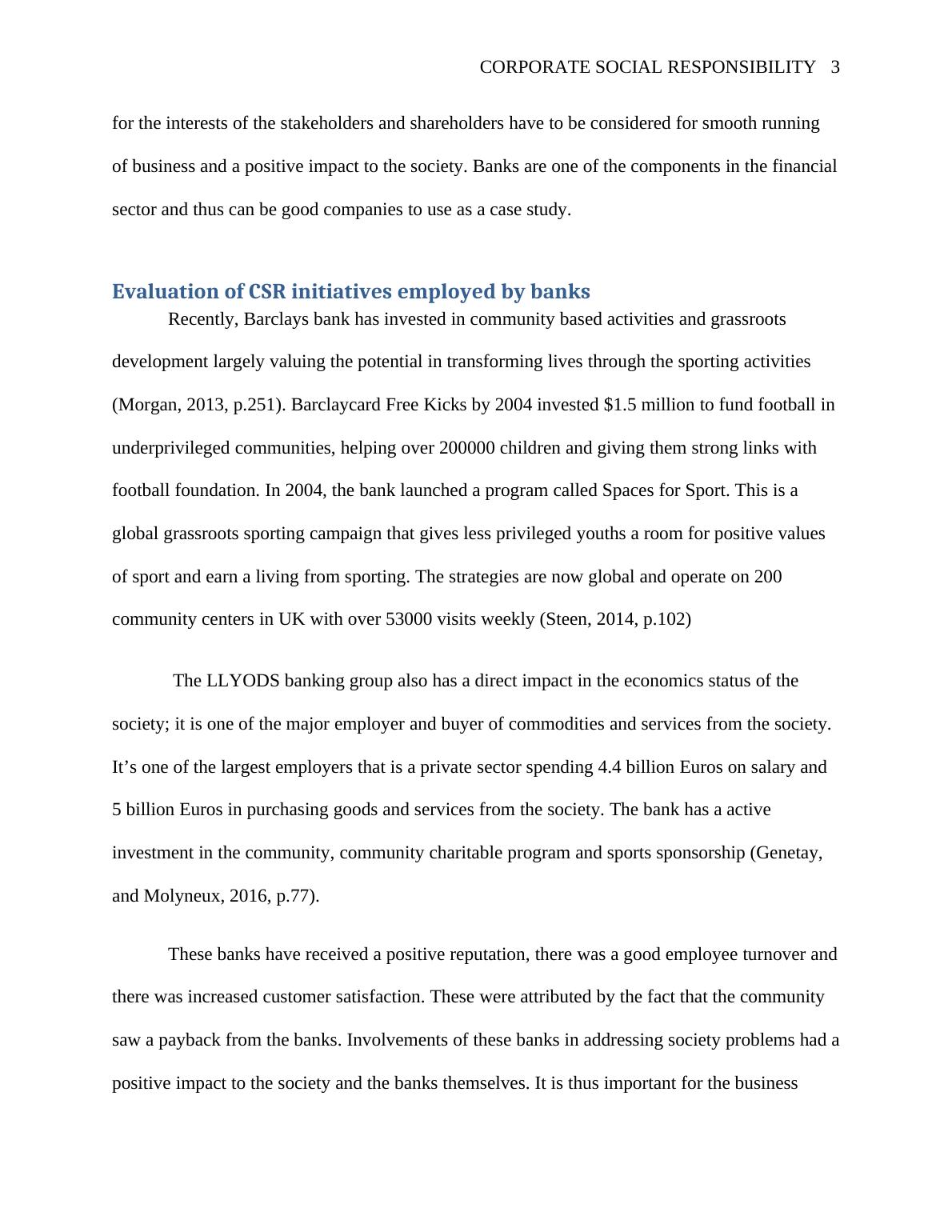Corporate Social Responsibility and its Impact on Banks
An essay discussing the concept of Corporate Social Responsibility and its three models: stakeholder theory, business ethics theory, and shareholder value theory.
7 Pages1931 Words54 Views
Added on 2023-01-06
About This Document
This article explores the concept of Corporate Social Responsibility (CSR) and its impact on banks. It discusses the different CSR initiatives employed by banks, such as community-based activities and grassroots development. The article also evaluates the Payment Protection Insurance (PPI) incident in relation to CSR and its effects on banks. Additionally, it highlights the case of Liverpool Victoria as a model for promoting CSR. Overall, the article emphasizes the importance of CSR for banks and the positive impact it can have on society.
Corporate Social Responsibility and its Impact on Banks
An essay discussing the concept of Corporate Social Responsibility and its three models: stakeholder theory, business ethics theory, and shareholder value theory.
Added on 2023-01-06
ShareRelated Documents
End of preview
Want to access all the pages? Upload your documents or become a member.
Stakeholder Theory Assignment | CSR Assignment
|10
|2537
|274
Business ethics constitute a functional
|6
|1251
|18
Social Responsibility of Business
|8
|2293
|39
Corporate Social Responsibility, Employees and Business Ethics
|15
|4528
|436
Business management of student Name of University Author note: Business management 12 BUSINESS MANAGEMENT Business management Name of university Author Note: Introduction
|13
|3233
|464
Business and Professional Ethics - Assignment
|10
|2680
|48



